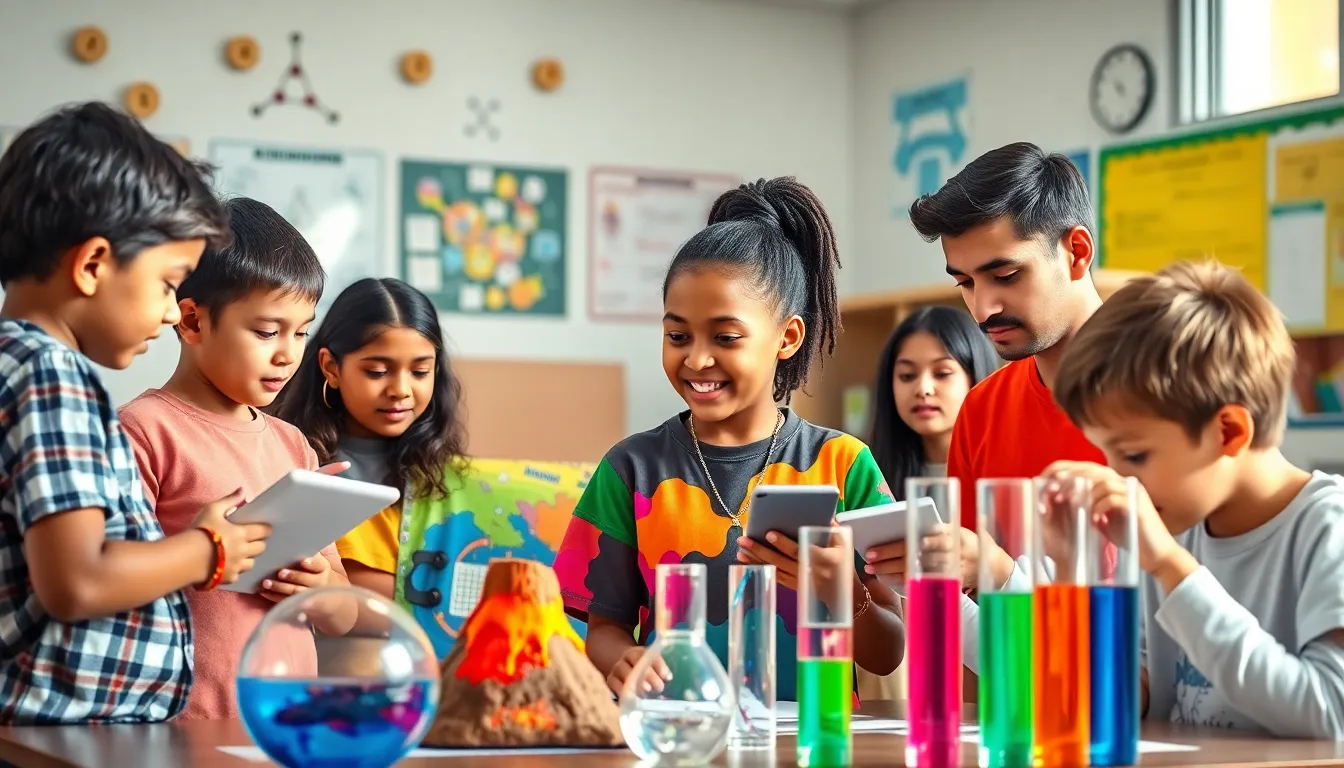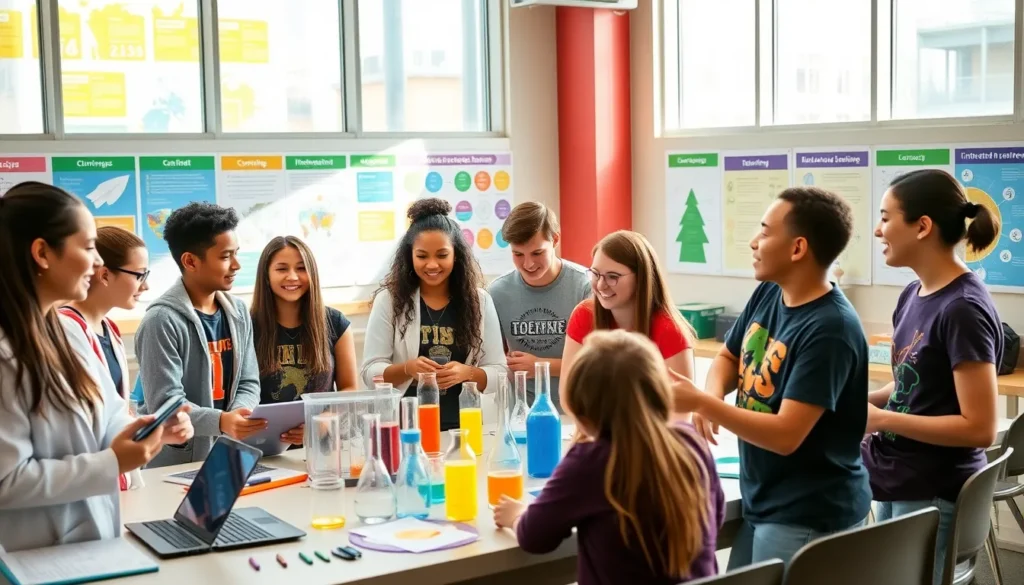In an era where interdisciplinary learning is paramount, Redwebzine Integrated Science emerges as a leading platform that promotes comprehensive science education. This innovative approach seeks to break down the barriers between traditional scientific disciplines, offering students a holistic and integrated view of science. By leveraging the collective knowledge and methodology from various scientific fields, Redwebzine fosters critical thinking, creativity, and a deeper understanding of the natural world. This article explores the essentials of Redwebzine Integrated Science, its significance in education, and the transformative potential it offers to students and educators alike.
Table of Contents
ToggleOverview of Redwebzine Integrated Science

Redwebzine Integrated Science is an educational resource that combines multiple scientific disciplines into a cohesive learning experience. This initiative acknowledges that scientific inquiry often requires the integration of knowledge across various fields, including physics, chemistry, biology, and environmental science. By presenting topics in an interconnected format, Redwebzine allows learners to see the relationships between different scientific concepts and encourages them to apply their knowledge in real-world scenarios.
The platform offers a range of resources, including articles, experiments, and interactive content, designed to cater to diverse learning styles. Its mission is to make science accessible, engaging, and relevant, preparing students not just for exams, but also for the challenges of the future.
The Role of Integrated Science in Education
Integrated science is crucial in today’s educational landscape as it mirrors the interdisciplinary nature of real-world scientific problems. By studying science in an integrated manner, students develop a more comprehensive understanding that transcends traditional boundaries. This approach not only fosters a deeper appreciation of each discipline but also enhances critical thinking and problem-solving skills.
Besides, integrated science encourages collaboration among students, allowing them to work in teams to explore complex issues. This method aligns with modern educational practices, which emphasize the importance of collaboration and effective communication in scientific endeavors.
Key Features of Redwebzine Integrated Science
Redwebzine Integrated Science boasts several key features that set it apart from traditional science educational resources:
- Interdisciplinary Content: Each module is designed to showcase the interconnectedness of various scientific fields, enabling learners to explore how physics, biology, and chemistry work together in nature.
- Interactive Learning: The platform includes quizzes, simulations, and hands-on experiments that allow students to engage with material actively, making learning more dynamic and enjoyable.
- Real-World Applications: Lessons are centered around practical applications, helping students understand how scientific concepts relate to everyday problems and global challenges, such as climate change and technological innovations.
- Diverse Learning Resources: The site provides a variety of formats, including videos, articles, and infographics, catering to different learning preferences and enhancing retention.
Benefits of Integrated Science Approach
The integrated science approach offers several benefits to educators and students alike:
- Holistic Understanding: Students gain a broader perspective on scientific concepts, understanding how different branches of science interrelate.
- Enhanced Engagement: By providing interactive and relatable content, students are more likely to be engaged and interested in their studies.
- Improved Critical Thinking Skills: Integrated science encourages students to analyze and synthesize information from various disciplines, boosting their analytical capabilities.
- Preparation for Future Careers: As many modern careers require interdisciplinary knowledge, this approach equips students with the skills they need to thrive in various fields.
Case Studies and Success Stories
Several schools and organizations have successfully implemented Redwebzine Integrated Science, showcasing its effectiveness:
- Lincoln High School’s Science Initiative: After adopting Redwebzine’s platform, Lincoln High reported a significant increase in student engagement and understanding of complex subjects. Teachers noted improved collaboration in projects where students had to apply knowledge from multiple scientific disciplines.
- Global Climate Change Project: A collaborative initiative in partnership with Redwebzine allowed students to research and develop solutions to local environmental issues. This project fostered a sense of responsibility towards their community and showcased the practical applications of integrated science.
These case studies illustrate not only the effectiveness of the integrated science curriculum but also its potential to inspire the next generation of scientists.
Challenges and Solutions in Integrated Science
Even though its benefits, the integrated science approach encounters certain challenges:
- Curriculum Alignment: Some educators express concerns over fitting integrated science into existing curriculum frameworks.
Solution: Collaboration among educators can help create complementary curricula that embrace integrated science principles.
- Resource Availability: Access to quality resources can be uneven across different schools.
Solution: Redwebzine’s online platform mitigates this by providing free access to its materials, ensuring that resources are widely available regardless of local funding.
- Teacher Training: Educators may lack experience in interdisciplinary teaching.
Solution: Professional development programs focusing on integrated science teaching strategies can prepare teachers to effectively deliver this curriculum.
Future Trends in Integrated Science Education
The future of integrated science education looks promising as several trends emerge, including:
- Increased Use of Technology: Virtual reality, augmented reality, and AI are expected to play a significant role in simulating complex scientific concepts, making learning more immersive.
- Global Collaboration: Projects that involve international collaboration will enhance learning by exposing students to diverse scientific challenges and viewpoints.
- Focus on Sustainability: With the growing emphasis on sustainability and environmental science, integrated science curricula will likely incorporate more topics related to ecological balance and resource management.
Conclusion
Redwebzine Integrated Science represents a significant advancement in science education, championing a holistic and real-world approach to learning. By breaking down traditional barriers between scientific disciplines, it enriches students’ understanding and prepares them for the complexities of the future. As integrated science continues to evolve, it promises to equip learners with the necessary skills to tackle pressing global challenges and embrace the interdisciplinary nature of modern scientific inquiry.





